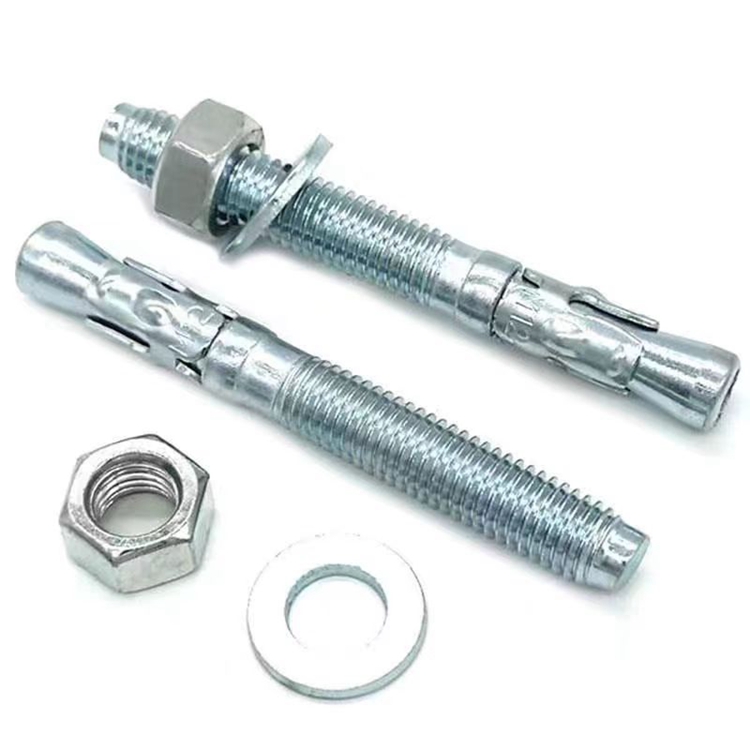3 8 carriage bolts manufacturers
Dec . 02, 2024 04:29 Back to list
3 8 carriage bolts manufacturers
Understanding Carriage Bolts and Their Role in Manufacturing
Carriage bolts have long been a staple in the construction and manufacturing industries. Known for their distinctive rounded heads and square necks, these fasteners provide a reliable and secure means of joining materials together. Their design allows them to be easily tightened, making them ideal for various applications, from furniture assembly to structural connections. This article will delve into the significance of carriage bolts, the factors influencing their manufacturing, and how a keen understanding of this essential fastener can enhance productivity and efficiency in various projects.
What Are Carriage Bolts?
Carriage bolts are a type of fastener characterized by their smooth, rounded head and square neck. The square neck prevents the bolt from turning when a nut is tightened, ensuring a secure fit without the need for a wrench on the non-threaded side. They are available in various materials, including stainless steel, carbon steel, and brass, to suit different environments and use cases. Their robust design makes them particularly suited for use in applications requiring high strength and durability.
Applications of Carriage Bolts
Carriage bolts are utilized in countless applications due to their versatility. Commonly found in woodworking, they are used to assemble items such as picnic tables, benches, and wooden fencing. In construction, they play an integral role in securing wooden beams together or in attaching metal brackets. The automotive industry also employs carriage bolts for fastening engine components. Their ability to withstand significant stress and load makes them an essential component in both temporary and permanent structural assemblies.
The Manufacturing Process
The manufacturing of carriage bolts involves several steps to ensure quality and consistency. The process typically begins with the selection of raw materials, which significantly influences the performance and characteristics of the finished product. High-quality raw materials are essential to manufacturing resilient and durable carriage bolts capable of withstanding various physical stresses.
3 8 carriage bolts manufacturers

Once the materials are selected, the forging process begins. During forging, heated metal is shaped into the desired form, which involves creating the rounded head and square neck. This step is critical as it defines the strength and integrity of the bolt. After forging, the bolts go through a series of machining processes to ensure that the threads are precise and smooth. This precision is vital for ensuring a secure fit when bolted together.
Post-manufacturing, carriage bolts require surface treatments such as galvanization or coating to enhance their corrosion resistance. This is particularly important for bolts that will be used in outdoor applications or in environments where moisture and chemicals could lead to rust.
Factors Influencing Manufacturing
Several factors influence the manufacturing process and the overall quality of carriage bolts. The equipment used plays a significant role. Advanced machinery that allows for high-speed production and tight tolerances can lead to improved efficiency and reduced production costs. Manufacturers must also consider the skill level of their workforce. Well-trained staff equipped with an understanding of best practices can significantly impact the quality of the final product.
Furthermore, quality control measures are crucial throughout the manufacturing process. Inspections at various stages ensure that any defects or inconsistencies are identified and rectified before the products reach the market. Adopting international standards for quality assurance helps manufacturers achieve a reputation for reliability and excellence.
Conclusion
In conclusion, carriage bolts are indispensable components in numerous construction and manufacturing applications. Understanding their design, the manufacturing process, and the factors influencing quality can significantly enhance project outcomes. Manufacturers who prioritize quality material selection, efficient processes, and rigorous quality control measures will not only improve their product offerings but also contribute to the overall safety and durability of the structures they help to create. As industries continue to evolve, the demand for high-quality carriage bolts will remain strong, emphasizing the importance of innovation and specialization within this niche market.
Latest news
-
High-Quality Panel Stud Bolt Reliable Panel Stud Bolt Factory & Suppliers
NewsJul.08,2025
-
High-Precision Fine Thread Locknuts Manufacturer & Supplier Custom Solutions
NewsJul.08,2025
-
PH Imperial Stud Bolt – High Strength Fasteners from Leading Supplier & Factory
NewsJul.07,2025
-
High-Quality Allen Wrench Bolts Leading Factory, Company & Suppliers
NewsJul.07,2025
-
Wholesale Ball Stud Bolt - High Quality Supplier & Factory Price Reliable Wholesale Ball Stud Bolt Company
NewsJul.06,2025
-
High-Strength Alloy Bolts Manufacturer & Supplier Quality Alloy Fasteners Factory
NewsJul.06,2025
